Happy Tuesday! We would do an April Fools’ Day bit, but we’ve learned our lesson about jokes taken literally.
Quick Hits: Today’s Top Stories
- The Israel Defense Forces (IDF) issued evacuation orders for Rafah, the southernmost city in Gaza, and surrounding areas on Monday. A military spokesperson said that IDF forces are “returning to fight with great force to eliminate the capabilities of terror organizations in these areas.” The move followed the IDF’s expanded ground operations against Hamas in Rafah over the weekend. About a fifth of Gaza is now covered by evacuation orders, as Israel resumes operations in the enclave in the wake of the collapsed U.S.-brokered ceasefire and hostage release deal.
- Three of the four U.S. Army soldiers who went missing during a tactical training exercise in Lithuania last week were found dead on Monday, U.S. Army Europe and Africa Command announced. The soldiers’ bodies were found inside the armored vehicle they had been operating, which was submerged in a bog underneath 15 feet of water and mud. U.S. Navy and Lithuanian divers are continuing to search the surrounding area for the fourth soldier. The names of the deceased troops have not yet been released.
- Marine Le Pen, the leader of France’s far-right party National Rally (RN), was convicted of embezzlement on Monday and barred from running for public office for five years. Le Pen and eight other European Parliament members, as well as 12 parliamentary assistants, were found guilty of misusing parliament funds to pay staff working for her party. A criminal court sentenced her to four years in prison, but half of the sentence was suspended and the other half can be served under house arrest. Le Pen—who has denied any wrongdoing and denounced the conviction as a witch hunt—was considered the frontrunner in France’s 2027 presidential election, but she will be ineligible to run barring a successful appeal.
- Dr. Peter Marks, the Food and Drug Administration’s top vaccine regulator, has resigned, the Wall Street Journal first reported Friday. Marks—who joined the agency in 2012 and went on to help lead the first Trump administration’s Operation Warp Speed, a public-private partnership that produced the first COVID-19 vaccines—was reportedly given the choice to leave of his own accord or be fired. In a resignation letter, Marks penned a scathing criticism of Health and Human Services Secretary Robert F. Kennedy Jr.: “It has become clear that truth and transparency are not desired by the secretary, but rather he wishes subservient confirmation of his misinformation and lies.” Kennedy has long questioned the safety and effectiveness of many vaccines.
- The Trump administration on Sunday deported 17 more alleged “violent criminals” belonging to the Tren de Aragua and MS-13 gangs to a mega prison in El Salvador. Officials said the deportations were done under traditional removal authority rather than the Alien Enemies Act. The use of the obscure authority to carry out deportations without due process has been temporarily blocked while a legal challenge is adjudicated.
Russia Puts Up Roadblocks to a Ceasefire

Speaking to NBC News on Sunday, President Donald Trump said that he was “very angry, pissed off” at Vladimir Putin. The president’s rare invective against the Russian leader, together with his threat to impose tariffs on international buyers of the country’s oil, appeared to reflect the administration’s growing frustration at the main obstacle to a durable peace deal in Ukraine: the Kremlin.
Last month, Russia effectively rejected a Ukrainian-endorsed U.S. proposal to freeze fighting along all fronts for 30 days. Now, Putin is dragging his feet on Trump’s efforts to secure significantly pared-down deals to mutually halt attacks on energy targets and on the Black Sea—a strategy that could backfire as Trump considers ways to force Russia into concessions.
On Sunday, Trump threatened to target not just Russian oil but also its international purchasers with hefty tariffs unless there’s a breakthrough. “If Russia and I are unable to make a deal on stopping the bloodshed in Ukraine, and if I think it was Russia’s fault … I am going to put secondary tariffs on all oil coming out of Russia,” the president told NBC. But the timeline of such a move remains unclear. Asked by reporters on Air Force One whether there is a date by which he expects Putin to make a broader ceasefire deal, Trump said Moscow faces a “psychological” deadline. “If I think they’re tapping us along, I will not be happy about it,” he added.
But the administration has struggled to secure even more limited truces between the two warring parties. Last week, the White House announced that Ukraine and Russia had agreed to a pair of deals to “ensure safe navigation, eliminate the use of force, and prevent the use of commercial vessels for military purposes” in the Black Sea. Yet Moscow continues to push back on the terms. In addition to demanding that Europe reintegrate its agricultural bank, Rosselkhozbank, into the SWIFT banking system, Russia is calling for the lifting of all sanctions on the bank and other financial institutions involved in the country’s agricultural transactions.
There are also continued disagreements over what is covered by a partial ceasefire to halt attacks on Russian and Ukrainian energy sites, which the Trump administration first announced more than two weeks ago. While the U.S. and Ukraine say the deal outlaws strikes against Ukraine’s oil and gas production facilities, Moscow claims otherwise. On Friday, a Russian drone attack damaged a gas production facility in an apparent violation of the partial truce. And Russia’s defense ministry accused Ukraine of using drones to target a power grid facility in the Kursk region and an electric facility in the Bryansk region last week, actions Ukrainian officials deny.
On the battlefield, Russia is continuing to make slow advances in eastern Ukraine—at the cost of major combat losses. And it could be preparing for an even larger offensive. According to a report by the Associated Press, Ukrainian officials believe Russia is readying its forces for another multi-pronged attack in the spring and summer as a way to pressure Ukraine for more concessions in ongoing ceasefire talks. The incursions are expected to target the Sumy, Kharkiv, and Zaporizhzhia regions. “They’re dragging out the talks and trying to get the U.S. stuck in endless and pointless discussions about fake ‘conditions’ just to buy time and then try to grab more land,” Ukrainian President Volodymyr Zelensky warned on Thursday.
And Russian air attacks across Ukraine continue apace. On Friday, a large-scale drone attack on the eastern city of Dnipro killed four people and injured 21 others. Overnight Saturday, two people were killed and 35 others were wounded by drones in Ukraine’s second largest city of Kharkiv.
On the other side of the border, Ukrainian forces have in recent weeks given up significant ground in Russia’s Kursk region. But they’ve also begun a quiet push into the neighboring Belgorod region, according to Russian military bloggers. Neither Russia nor Ukraine has confirmed the incursions, but they appear to be part of Kyiv’s efforts to secure bargaining chips for future land swaps. “We will swap one territory for another,” Zelensky told The Guardian in February.
Meanwhile, Europe is continuing to chart ways to support Ukraine amid the uncertainty surrounding future U.S. security assistance. On Thursday, the “coalition of the willing”—a group of countries attempting to develop a peacekeeping structure for a post-truce Ukraine—agreed to expand intelligence sharing with Kyiv following a summit in Paris.
Several European countries also announced new weapons shipments to the war-torn country. On Wednesday, France committed to a $2.1 billion military aid package, including anti-tank missiles, air defense systems, armored vehicles, and other supplies. The Netherlands on Sunday pledged $541 million to boost Ukraine’s drone capabilities. And on Monday, Sweden unveiled its largest weapons package to Ukraine yet, committing nearly $1.6 billion in equipment including air defense and maritime capabilities.
But it remains to be seen whether Europe’s help will give Ukraine a badly needed leg up going into ceasefire talks. “We are now at a critical stage of the war. Our focus is now on supporting Ukraine as much as possible so that they can get into a position of strength during these negotiations,” Swedish Defense Minister Pål Jonson said Monday. “More [countries] need to do more.”
Today’s Must-Read
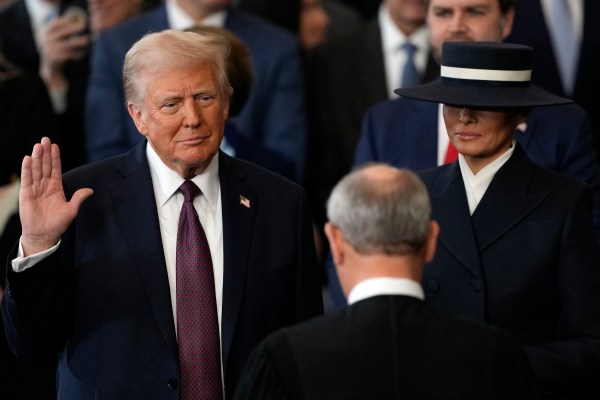
Is Donald Trump Serious About a Third Term?
Toeing the Company Line
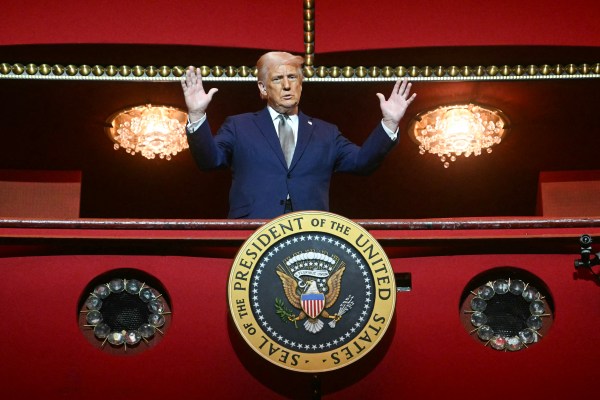
Literally and Seriously

A Glimmer of Hope in Gaza
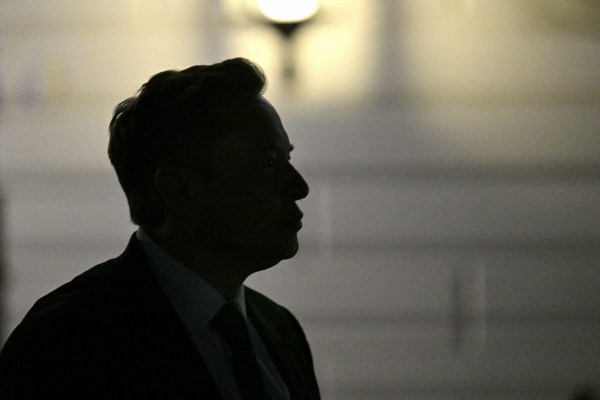
A Pro-Natalism for Normies
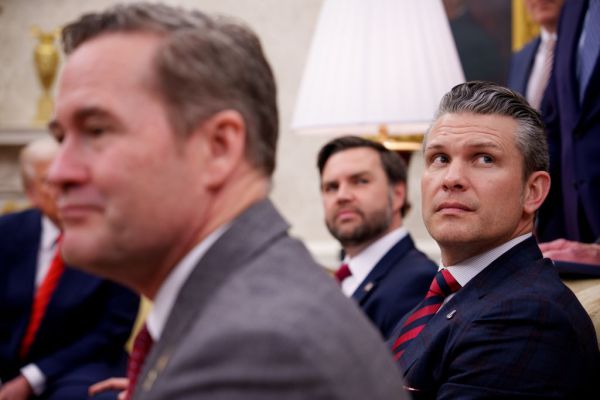
It’s Better to Be Good Than Lucky

Worth Your Time
- Writing for National Affairs, Robert P. Beschel Jr. argued that the GOP needs a better approach to civil service reform. “Republican policymakers are clearly eager to respond to real challenges, but they are acting without awareness of the hard-earned lessons that have shaped the civil service we inherited,” he wrote. “The struggles to establish a modern meritocratic civil service in America were protracted and politically brutal, with advocates of the spoils system fighting tenaciously in the late 19th and early 20th centuries to stop the movement in its tracks. Ironically, it was the Republican Party that led the way in pushing forcefully for the creation of a professional civil service. … Few would argue that the current federal civil service is without serious problems. It can be difficult to fire non-performers and attract talent for fields in high demand. Many have bemoaned the bureaucracy for its cost, inefficiency, and non-responsiveness. Change is clearly needed, and would in fact be welcome in many corners of the federal government. But even in these radical and polarized times, care must be taken to avoid adopting a cure much worse than the disease.”
Presented Without Comment
Peter Navarro, senior counselor to the president for trade and manufacturing, had the following exchange during an interview with Fox News on Sunday.
Fox News host Sharron Bream: The president says he doesn’t care if the prices go up on U.S. cars, so what’s the message to the U.S. consumer?
Navarro: The message is that tariffs are tax cuts. Tariffs are jobs. Tariffs are national security. Tariffs are great for America. Tariffs will make America great again.
Also Presented Without Comment
Bloomberg: Trump Plans to Contact North Korea, Touting ‘Good Relationship’
Also Also Presented Without Comment
NPR: White House Says It’s ‘Case Closed’ on the Signal Group Chat Review
In the Zeitgeist
If you’re feeling down about the state of the world, you’ll probably want to steer clear of the new season of Black Mirror, which is set to hit Netflix on April 10.
Let Us Know
Do you see Trump’s tough talk on Russia as a positive sign?


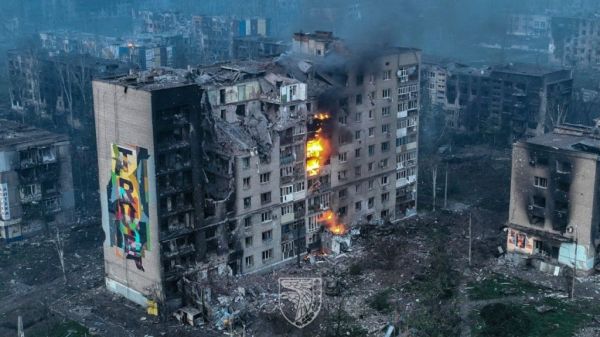
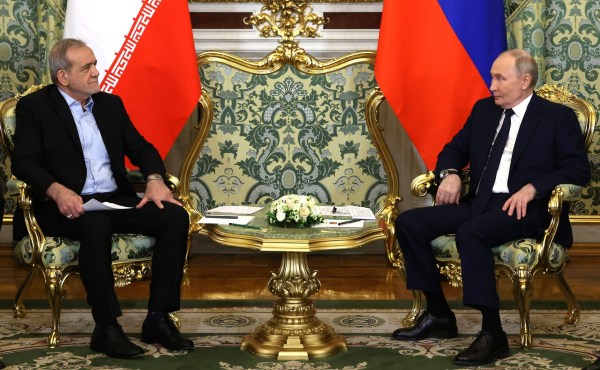
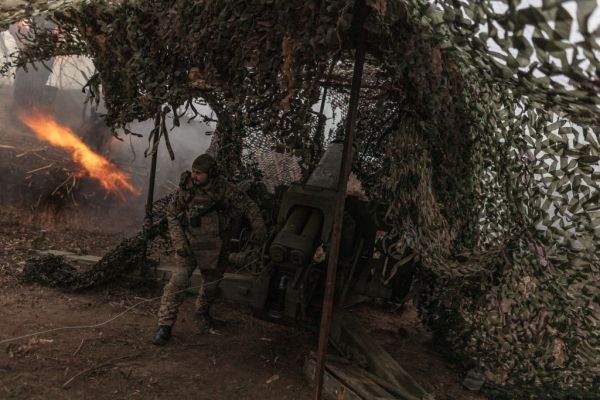
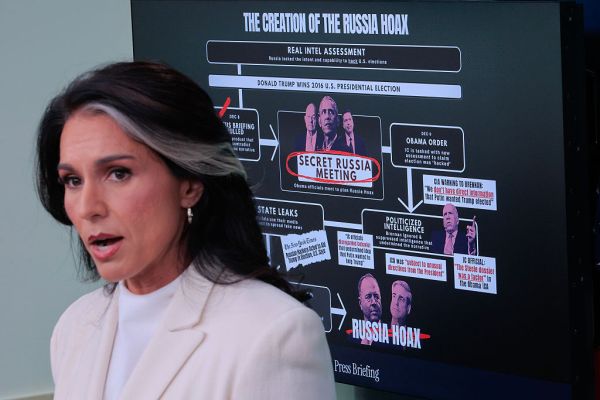

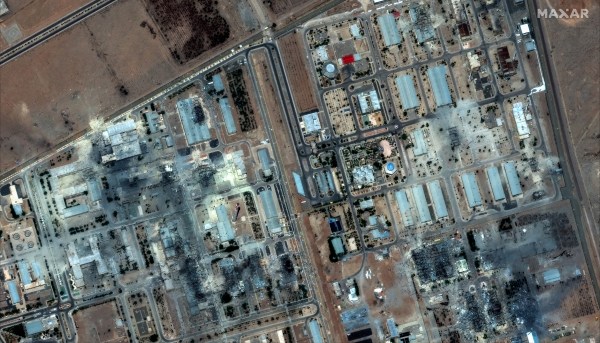


Please note that we at The Dispatch hold ourselves, our work, and our commenters to a higher standard than other places on the internet. We welcome comments that foster genuine debate or discussion—including comments critical of us or our work—but responses that include ad hominem attacks on fellow Dispatch members or are intended to stoke fear and anger may be moderated.
With your membership, you only have the ability to comment on The Morning Dispatch articles. Consider upgrading to join the conversation everywhere.